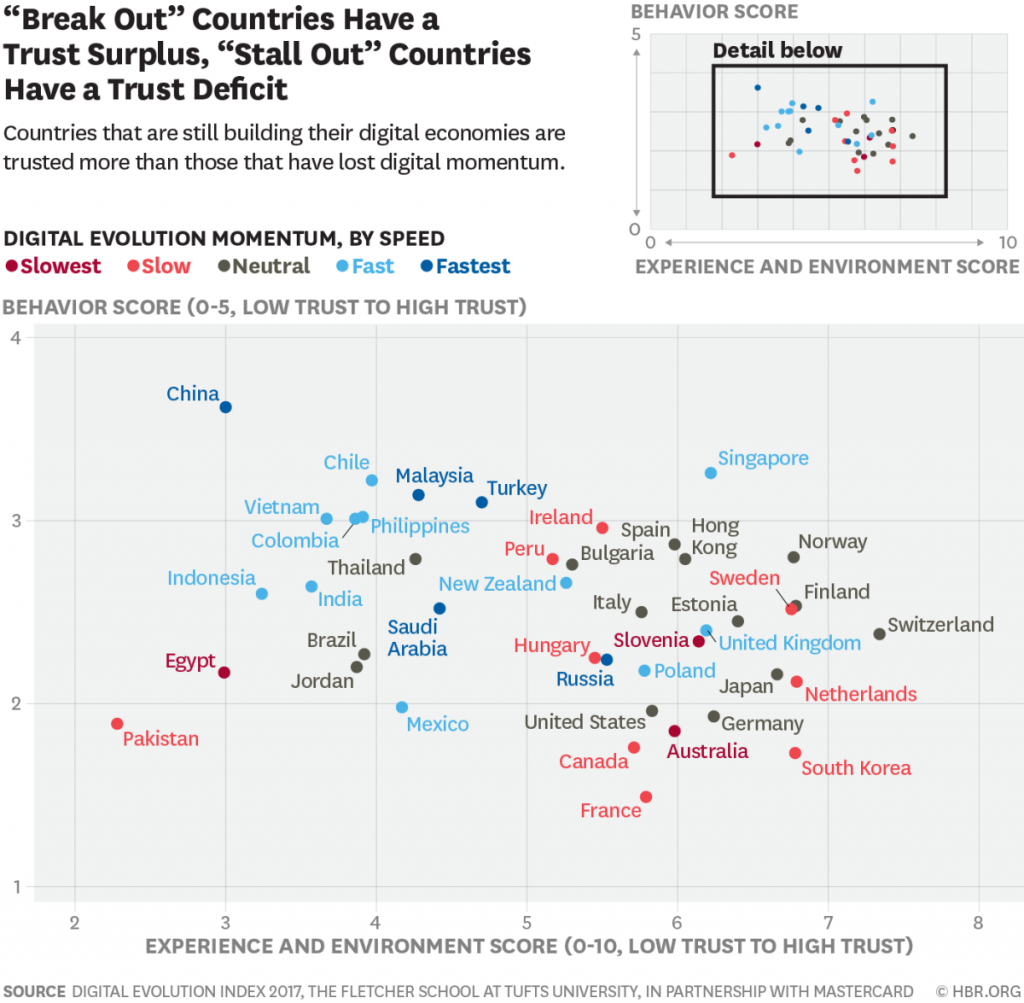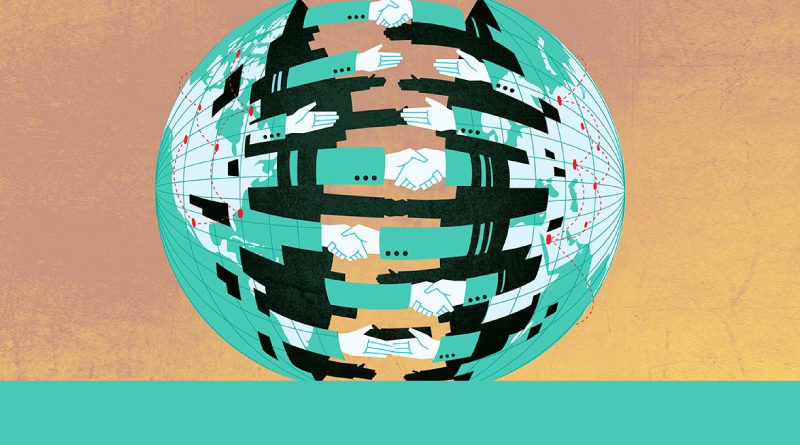Ajay Bhalla: 4 Dimensions of Digital Trust, Charted Across 42 Countries
by Bhaskar Chakravorti, Ravi Shankar Chaturvedi, and Ajay Bhalla
Read the full piece in the Harvard Business Review
The year 2018 is barely underway and, already, digital trust initiatives have captured headlines. Facebook’s Mark Zuckerberg has said his platform will de-prioritize third-party publisher content to keep users focused on more “meaningful” posts from family and friends. Google has led off the new year by blocking websites that mask their country of origin from showing up on Google News. And the European Union’s upcoming General Data Protection Regulation (GDPR) will affect every organization around the world that handles personal data for EU residents. The regulations will also, no doubt, inform data protection laws and corporate trust-building strategies elsewhere.
Even China’s opaque behemoths have started the year with unprecedented acknowledgements of the need to address trust concerns: Tencent had to publicly deny that it collects user WeChat history after it was openly challenged; Alibaba’s Ant Financial apologized to users of its mobile-payment service for automatically enrolling them in its social-credit scoring service.

What these stories underscore is that our digital evolution and our productive use of new technologies rests on how well we can build digital trust. But is it possible to measure digital trust and compare it across countries? Are there countries where guaranteeing trust is a more urgent priority and will draw a larger share of trust-building resources and regulations? The Fletcher School at Tufts University and Mastercard have a launched a research initiative to address these questions by studying the state of digital trust across 42 countries. Here are some of our initial findings, drawn from the study, “Digital Planet 2017: How Competitiveness and Trust in Digital Economies Vary Across the World.”

